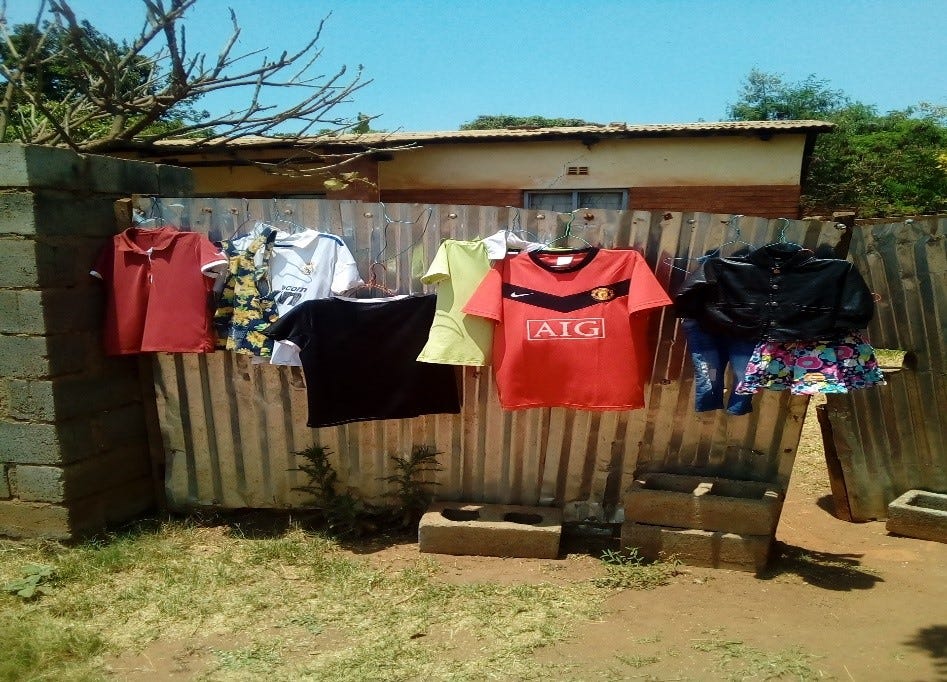Inspirational story about a feisty young woman who proves that anything is possible!
Latoya Jemima Zimpita has a dislocation disorder that requires her to use a walking cane to move around. Despite her illness, she has continued to pursue her dreams.
Malawi: In Malawi, youth unemployment remains one of the country's major challenges.
Latoya Jemima Zimpita (23), on the other hand, refuses to become another statistic. Latoya makes a living by selling secondhand clothes, shoes, sausages, perfume, and creating graphic designs for fonts and clothing.
She also works as a part-time musician, recording songs that have been heard on the Malawian music scene.
She is also a mentor who visits various schools in Lilongwe to encourage schoolgirls to stay in school and postpone marriage in order to complete their education and pursue their dreams.
Latoya Jemima Zimpita (pictured above) has a dislocation disorder that necessitates the use of a walking cane to facilitate her movement. Despite her illness, she has not let it stop her from pursuing her dreams.
She lives in Lilongwe's Area 49 with her mother and six-year-old sister.
What distinguishes Latoya's story is that she has accomplished so much while living with a dislocation disorder.
Latoya is from Blantyre and moved to Lilongwe with her mother and younger sister in 2014. Her life changed unexpectedly two years ago, while she was at home, when she discovered she was walking slowly and her legs were becoming weak.
She sought treatment at Lilongwe's Care PolyClinic, where doctors discovered three discs in her spinal cord had moved and diagnosed her with a dislocation disorder.
Doctors at the clinic advised her to have surgery, but her family could not afford it, and she was also too young for surgery. Instead of surgery, doctors released her from the hospital and advised her to do exercises at home to manage her condition.
Latoya was bed-bound and unable to walk for seven months at home, where she was cared for by her mother until she recovered. During her seven months at home, she received visits from well-wishers, some of whom gave her money.
Latoya used her savings to start a small business selling necklaces and earrings.
“During those seven months of recovery from my condition, I realised I could do anything and start a business like any other normal person,” she says.
She recovered after eight months, but she was unable to walk unaided and began using a walking cane.
Following that, Latoya sold her cell phone to fund her current venture. Despite the fact that her business does not pay well, she refuses to be a burden on her mother and relies on her for both financial and physical support.
Latoya gets up early every day to complete household chores on her own. She also helps her younger sister prepare for school and looks after the house while her mother is at work. She then sets up her merchandise outside her house and waits for customers.
Latoya is shown above selling secondhand clothes, one of many items she sells to support herself. Despite the fact that she has a dislocated shoulder, she refuses to rely on her mother, who lives with her, for financial support.
Despite her financial independence, her business, like any other, faces obstacles.
“Because of my condition, some customers take advantage of me by refusing to pay their debts,” she explains.
Latoya also faces constant discrimination as a result of her condition.
“I remember one time when I was walking alone with my walking cane, a complete stranger verbally abused me and told me I was walking on three legs,” she says.
“A former friend once told me that she couldn't walk with a disabled person, and some of my former friends would keep their distance from me whenever we were walking together.”
Unfortunately, she only has two friends because of the persistent discrimination she faces as a result of her condition.
I inquire if her condition has had any impact on her mental health.
“Absolutely, I suffer from stress at times and feel sorry for myself at others. I used to be depressed, but I'm feeling much better now and am more focused on my work. I've just accepted my situation and am hopeful that something good will come my way despite my current circumstances,” she says.
Latoya has some advice for unemployed youth as well as people living with a similar condition as hers, particularly those who spend their days begging for alms, based on all that she has accomplished despite her condition.
“I advise unemployed youth not to be discouraged; even if you start with a small business, it can grow. Not all of us will find work after graduating from university. Life in Malawi is difficult. If you do get a job, you should also start a business because life in Malawi is currently expensive. Youth should not be arrogant and expect everything to be handed to them without any work or effort. An ostentatious lifestyle can lead to young people engaging in illegal activities such as stealing. To today's youth, I say do whatever you can, no matter how small, to make ends meet,' she says.
“I believe that people suffering from a similar condition as mine can do business if they are willing.' Begging is bad, and people grow tired of beggars. 'Anything is possible.”






